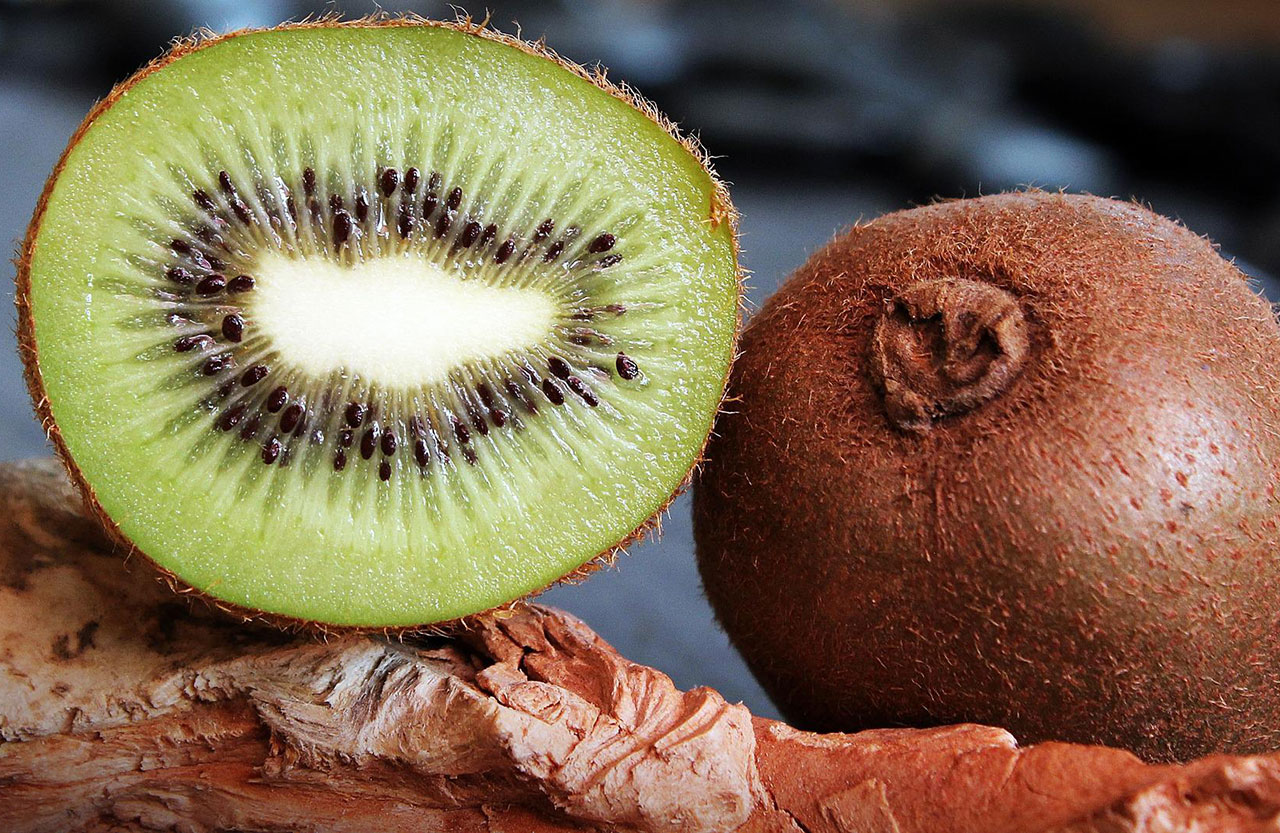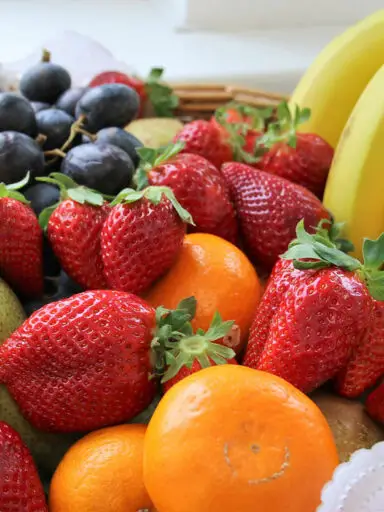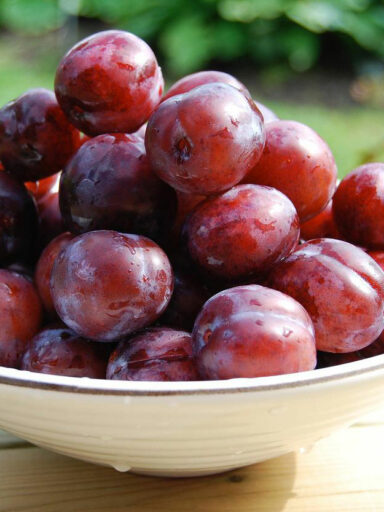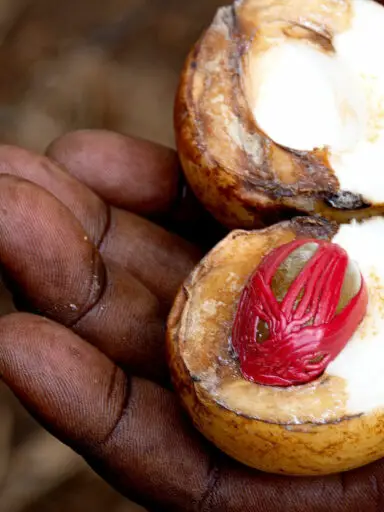The Kiwifruit is a sweet and delicious fruit also known as the Chinese gooseberry, melonette, or just Kiwi, in short, is native to North-central and Eastern China.
The name Kiwifruit (Kiwi) originated in New Zealand and has been widely adopted in commercial circles. The fruit is widely grown around the world with China, Italy, New Zealand, Chile, and Greece being the world’s biggest producers.
The fruit has an egg shape and is just a little larger than the chicken egg. The outer skin is fuzzy, dull greenish-brown, and fibrous. It has bright green or emerald inner flesh with rows of tiny black edible seeds with a cream center. The texture is soft and sweet with a taste that somewhat has a hint of sweet melon.
The fruit does well in temperate climates around the world. The fruit grows on a vine that produces tonnes of fruit per acre.
Common varieties include Hardy Kiwifruit, Fuzzy Kiwifruit, and Gold Kiwifruit. Fruit that is harvested firm but mature will stay from ripening for up to 8 weeks when stored in cold storage. At room temperature, they take about a week to ripen when harvested firm. The ripening process can be sped up by placing it in a paper bag with apples, bananas, or pears.
Ripe fruit should be stored away from other fruit as the ethylene gas they emit tends to over-ripen them.
When purchasing the Kiwifruit, you should select fruit that is free from bruises or fungus. They should be slightly firm when pressed and not too soft.
How to Prepare Kiwifruit in the Kitchen
One should wash the fruit under cold running water to remove any pesticide residue, dirt, and sand particles. The entire fruit is now ready to be eaten as the entire fruit is edible including the skin.
Usually, the fruit is cut into slices and added to fruit salad dishes. It is also popular with strawberries and yogurt. It can be used as a marinade for poultry dishes such as kiwifruit and pineapple sauce.
The fruit can also be used to make items such as jelly, pie dishes, juice, muffins, and cheesecake delights. It is also used in cake and other pastry dishes. It is also commonly used as a garnish for other sweet dishes. Sliced kiwifruit exposed to air becomes soft after a while so it should be eaten soonest possible after it has been cut.
In New Zealand, it is used to make the popular dessert pavlova.
Nutritional Information About Kiwifruit
Kiwifruit provides about 61 calories per 100 grams and contains some amount of carbohydrates and trace amounts of fat. It contains no cholesterol and is a good source of dietary fiber. The fruit is also an excellent source of vitamins and anti-oxidants.
It contains good amounts of folates as well as is a good source of vitamin E and vitamin K. It is also an excellent source of vitamin C.
Kiwi is also a good source of potassium and calcium. It also has good amounts of iron, magnesium, and manganese.



